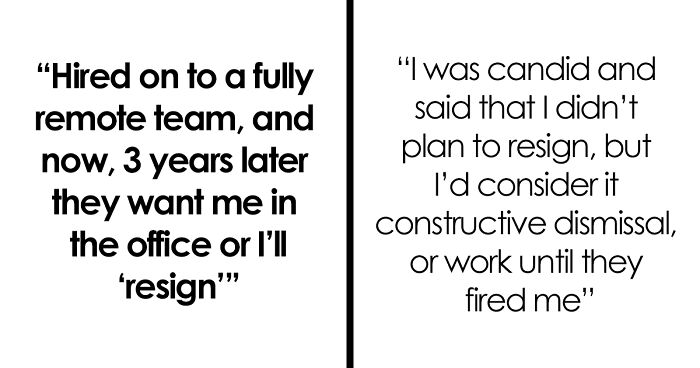
Worker Given 90 Days To Return To Office Or Be Terminated, Refuses To Go Down Without A Fight
Once you’ve had a taste of the luxurious work from home life, the idea of returning to an office might sound like a nightmare. Going from sleeping in 30 extra minutes each morning and having a relaxed cup of coffee in your kitchen to commuting through rush hour traffic to drink burnt coffee in a cubicle is not an easy transition.
So when one employee, who was originally hired to be fully remote, was told that they would soon have to start showing their face in the office, they decided to share their story online as a cautionary tale. Below, you’ll find the full post that was recently shared on r/Antiwork, as well as some of the replies invested readers left.
Three years ago, this person was hired to be a fully remote employee
Image credits: Nataliya Vaitkevich (not the actual photo)
Today, however, they’re being pressured to start commuting or give up their position
Image credits: CadoMaestro (not the actual photo)
Later, the worker added a few more details to their post for clarification
Image credits: u/Sir_apoc
Remote work has become extremely popular in recent years
Image credits: Tima Miroshnichenko (not the actual photo)
Prior to the pandemic, many companies had never even considered what it would be like to have their employees stay home and work remotely. But over the last few years, businesses worldwide have completely revamped their structures and many have realized that working remotely may be the way of the future. As of 2023, 12.7% of full-time employees work remotely, and nearly a third have a hybrid model, Forbes reports. It’s also estimated that by 2025, 32.6 million Americans will be working fully remotely. This should come as no surprise, though, when you consider that a whopping 98% of workers prefer to work from home at least some days.
According to the Pew Research Center, one third of workers in the US who are allowed to work from home now do so all of the time. When it comes to why employees often prefer working remotely, 71% told Pew Research that it helps them balance their work and personal lives, and 56% say it makes it easier to get work done and meet deadlines. Allowing employees to work remotely can even provide benefits for employers, as they can spend less on maintaining office spaces, their employees are likely to be more productive at home, absenteeism is reduced, more applicants will apply for remote positions, and it allows the company to be better prepared for disasters.
Many workers are now unwilling to ever return to offices
Image credits: Proxyclick Visitor Management System (not the actual photo)
Despite all of the benefits workers and companies have seen from allowing employees to work remotely in recent years, some are still insistent on forcing employees to return to the office. Or, in the case of this person on Reddit, force employees into the office for the very first time. But according to a 2022 survey from Reli Exchange, a quarter of employees being asked to return to the office, at least part-time, have refused to comply with their employers’ requests, even if it results in their termination. And when it comes to what rights employees have when being asked to return to the office, Danielle Abril at the Washington Post says it depends on several factors. Employees might not have any technical, legal protection when their bosses demand that they start commuting, but there can be strength in numbers.
Robin Samuel, a partner in the employment practice at Baker McKenzie based in California, told the Washington Post that employers are more likely to be “sensitive to employees” when there’s a risk of a labor shortage. “They don’t want to fire everybody. That will hurt them,” Samuel says. So workers are encouraged to have conversations with their employers and raise their concerns before deciding to up and leave their jobs. Catherine Fisk, faculty director of the Berkeley Center for Law and Work, also says that the best way to advocate for flexible work environments is to prove to management that remote workers are just as valuable, if not more, than those working from the office.
Companies technically can demand that their workers start commuting, but it’s not always in their best interest
Image credits: Sora Shimazaki (not the actual photo)
Unfortunately, when it comes to positions being changed from remote to hybrid or fully in the office, it appears that companies do have the power to change their minds and expect employees to just follow suit. Especially when someone is on an “at will” employment contract, their employer has the legal right to change working arrangements, or fire employees, at any time. “If a worker wants to ensure a job they’re taking remains remote or hybrid (meaning working part-time from the office) for the long term, their best protection is a contract,” Abril explains for the Washington Post. “That could be a separate contract spelling out the terms of the remote/hybrid work arrangement, it could be included in the offer letter the employee signs upon hiring or part of a union contract.”
In this particular case on Reddit, many readers have encouraged the employee to continue working until they’re fired and to keep meticulous records of communication about the change in their position and their concerns about having to commute to the office. Perhaps that will help them be able to retain their position, despite their current frustrations. We would love to hear your thoughts on this situation in the comments below, pandas. Have you ever been forced to start working in the office after being hired in a remote role? Feel free to share down below, and then if you’re interested in reading another Bored Panda article discussing remote work, look no further than right here!
Readers shared messages of support and encouraged the worker to stand their ground
I hired for a company offering fully remote positions. This june they tried a stunt that many interpreted as trying to get people to work in office. It horrendously backfired. The simple reality: they have office space for about 200 people but grown so fast they now have nearly 600 workers. The company is settled in Berlin. There's no more office space to have near their office. A tentative attempt to free money to rent more space was unmistakably crushed by the stakeholders who absolutely refused to pay for office space (Berlin is extremely expensive). They also made it adamantly clear that locally limited recruitment would not be tolerated. The stakeholders demand country wide talent recruitment and want to see proof. They don't want a hit on more office space through the back door. So the attempt to turn our mostly remote company into anything even partly in office failed.
My wife's job went remote. They even sold one of the two office buildings on their campus! They started talking about return to work and people have been quitting like crazy. My wife switched to a permanently remote division and they are now trying to make them come in... why do these execs feel the need to see slaves in the field? If the work is getting done, it's getting done - higher productivity, better work/life, happier employees. Let's just f**k that all up!
A vast layer of middle management was exposed as worthless during COVID when the rank and file showed they could be just as productive (if not more productive) working from home and without some a$$munch scheduling unnecessary meetings, looking over everyone's shoulder, and other general douchebaggery. Meanwhile, all the C-Suite folks' investment portfolios are chock full of commercial real estate, and they're taking it in the shorts with the bottom falling out of that sector.
Load More Replies...Massive amounts of unnecessary pollution from cars that do not need to be on the road at a time when heat records are being broken, major hurricanes are fueled by the hottest water temperatures on records, more fires, more heat deaths-- & what is the death toll now from the fires in Hawaii? NOW both government & private industries are stomping on the accelerator to dump more & more pollution into the atmosphere? What kind of world are we leaving for our children with these stupid, ego-driven policies? We should be doing everything possible to slow this damage down. Working from home, remote work, should be encouraged & implemented as much as possible! Also: The fact that government is now mandating federal workers, many of whom were hired as remote or hybrid long before covid, to commute to work in leased offices wastes tax money & sets a bad stupid example for private industry. There are other ways to handle this, such as incentives to convert office space to residential.
So that's another reason those of you who can work from home should be encouraged to. If there's a way to do what was done successfully in Montana, this may be a way forward for similar on a massive scale. Bet even the rich people on the coasts would do something constructive since it's in their interests too. Lots of insurance companies are running out of money to cover losses anyway.
Load More Replies...I hired for a company offering fully remote positions. This june they tried a stunt that many interpreted as trying to get people to work in office. It horrendously backfired. The simple reality: they have office space for about 200 people but grown so fast they now have nearly 600 workers. The company is settled in Berlin. There's no more office space to have near their office. A tentative attempt to free money to rent more space was unmistakably crushed by the stakeholders who absolutely refused to pay for office space (Berlin is extremely expensive). They also made it adamantly clear that locally limited recruitment would not be tolerated. The stakeholders demand country wide talent recruitment and want to see proof. They don't want a hit on more office space through the back door. So the attempt to turn our mostly remote company into anything even partly in office failed.
My wife's job went remote. They even sold one of the two office buildings on their campus! They started talking about return to work and people have been quitting like crazy. My wife switched to a permanently remote division and they are now trying to make them come in... why do these execs feel the need to see slaves in the field? If the work is getting done, it's getting done - higher productivity, better work/life, happier employees. Let's just f**k that all up!
A vast layer of middle management was exposed as worthless during COVID when the rank and file showed they could be just as productive (if not more productive) working from home and without some a$$munch scheduling unnecessary meetings, looking over everyone's shoulder, and other general douchebaggery. Meanwhile, all the C-Suite folks' investment portfolios are chock full of commercial real estate, and they're taking it in the shorts with the bottom falling out of that sector.
Load More Replies...Massive amounts of unnecessary pollution from cars that do not need to be on the road at a time when heat records are being broken, major hurricanes are fueled by the hottest water temperatures on records, more fires, more heat deaths-- & what is the death toll now from the fires in Hawaii? NOW both government & private industries are stomping on the accelerator to dump more & more pollution into the atmosphere? What kind of world are we leaving for our children with these stupid, ego-driven policies? We should be doing everything possible to slow this damage down. Working from home, remote work, should be encouraged & implemented as much as possible! Also: The fact that government is now mandating federal workers, many of whom were hired as remote or hybrid long before covid, to commute to work in leased offices wastes tax money & sets a bad stupid example for private industry. There are other ways to handle this, such as incentives to convert office space to residential.
So that's another reason those of you who can work from home should be encouraged to. If there's a way to do what was done successfully in Montana, this may be a way forward for similar on a massive scale. Bet even the rich people on the coasts would do something constructive since it's in their interests too. Lots of insurance companies are running out of money to cover losses anyway.
Load More Replies...
 Dark Mode
Dark Mode 

 No fees, cancel anytime
No fees, cancel anytime 







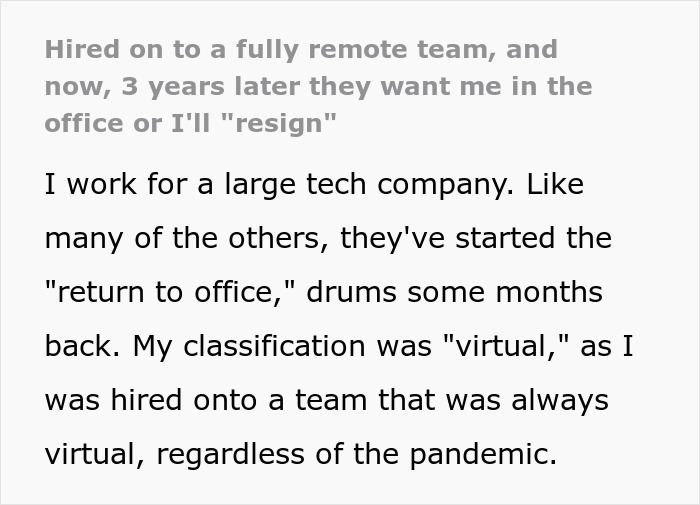
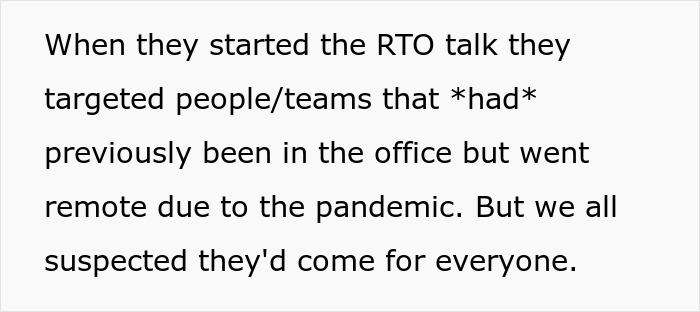
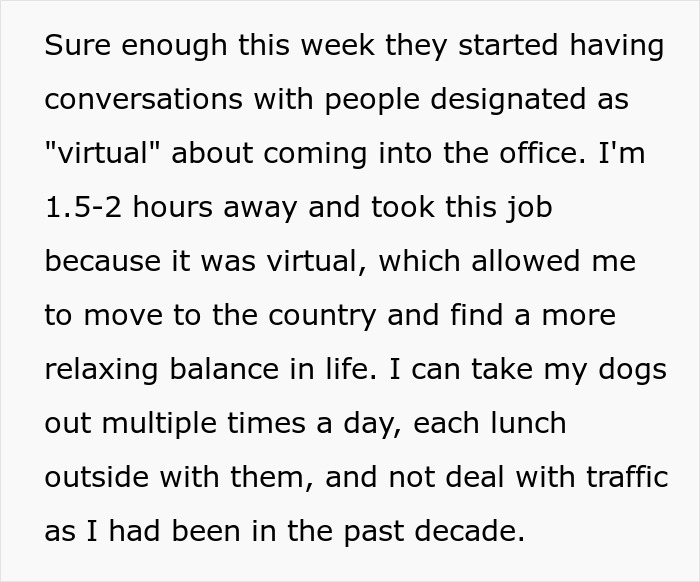
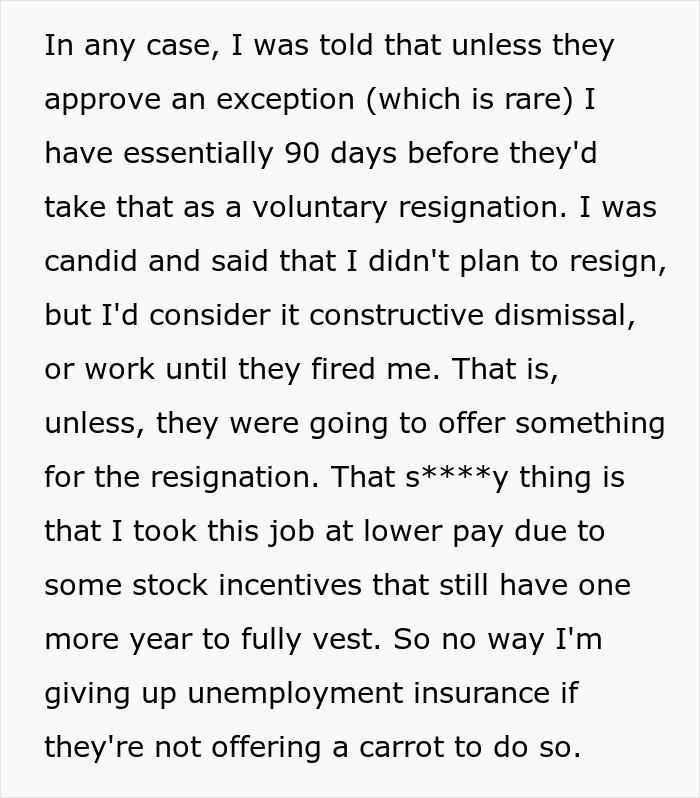
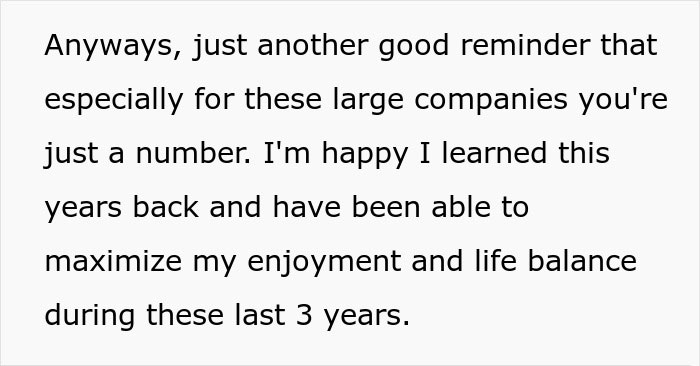
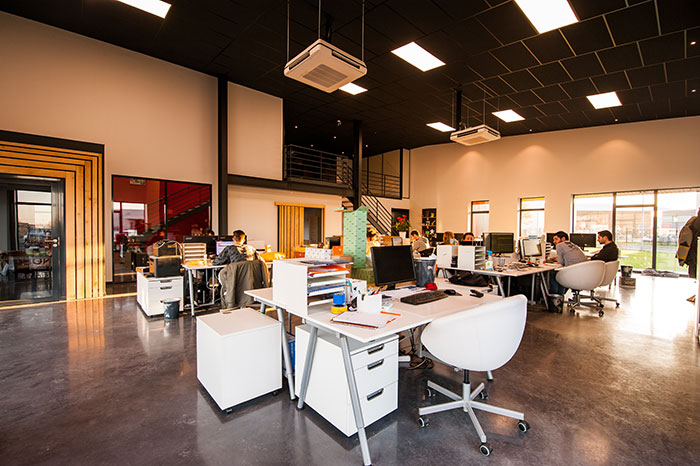
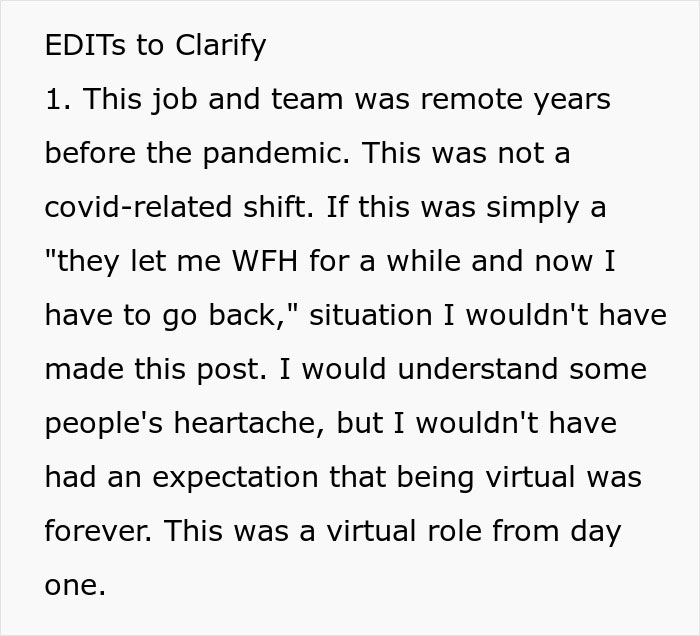
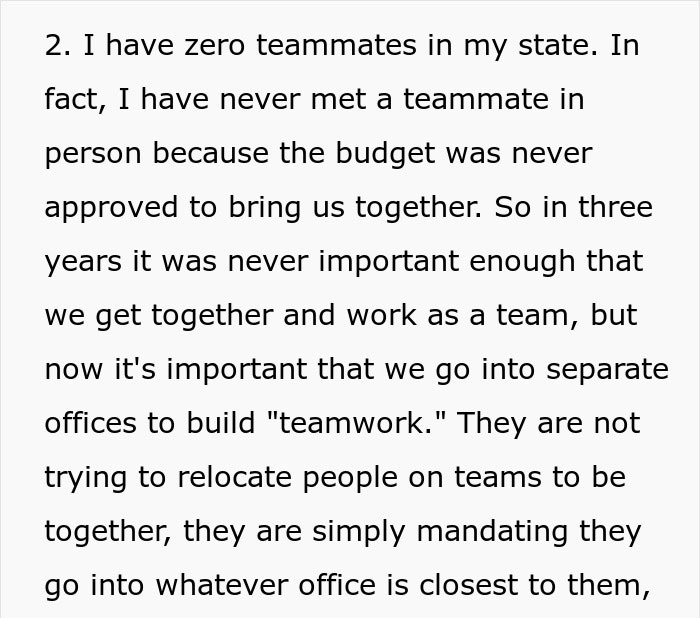
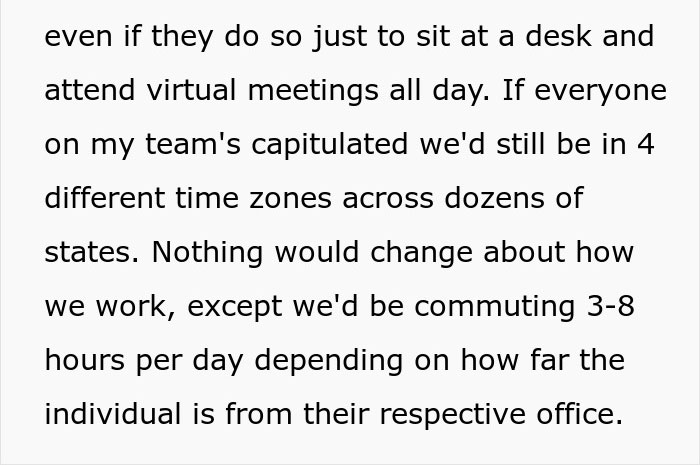
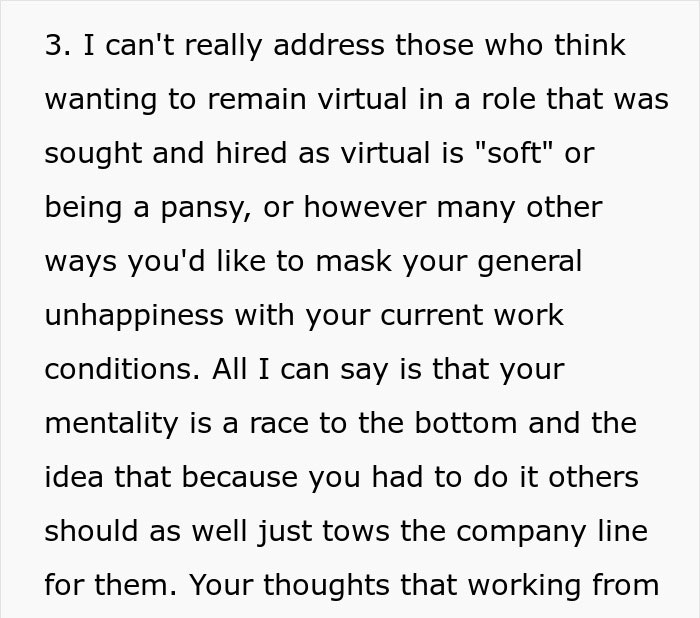
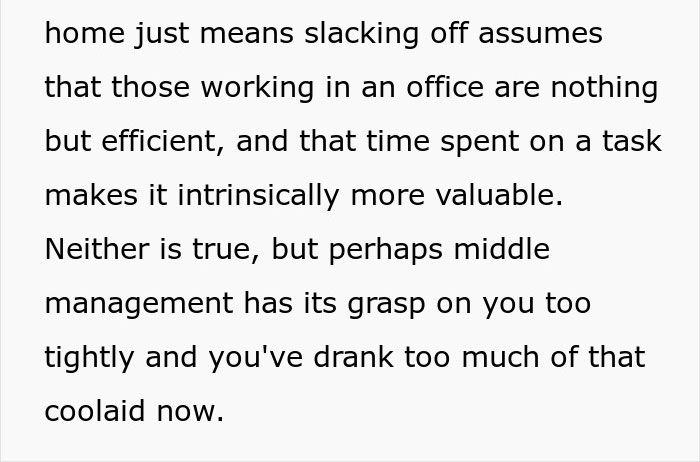
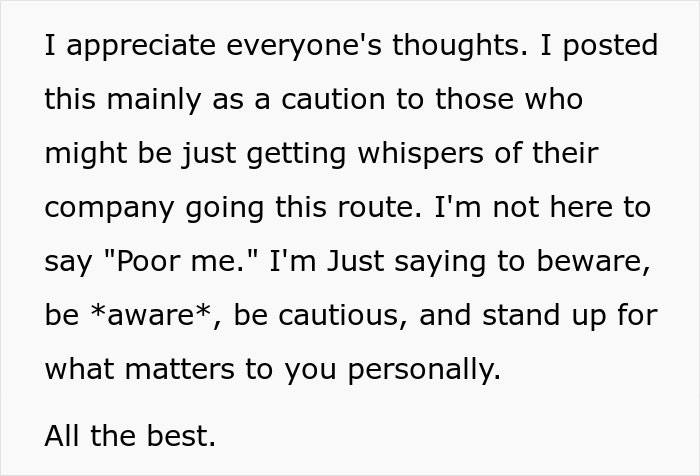

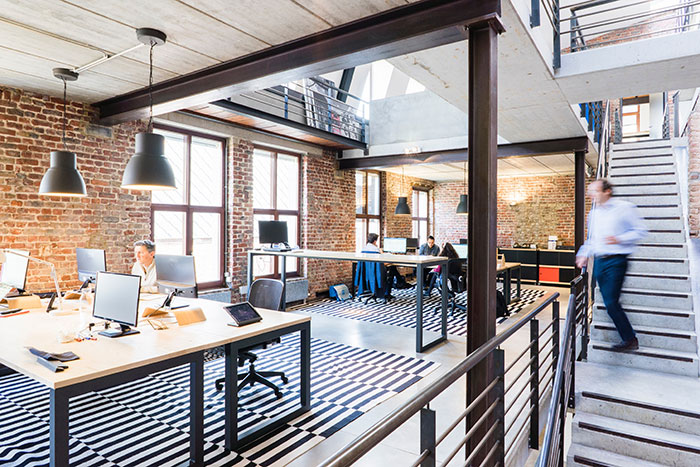

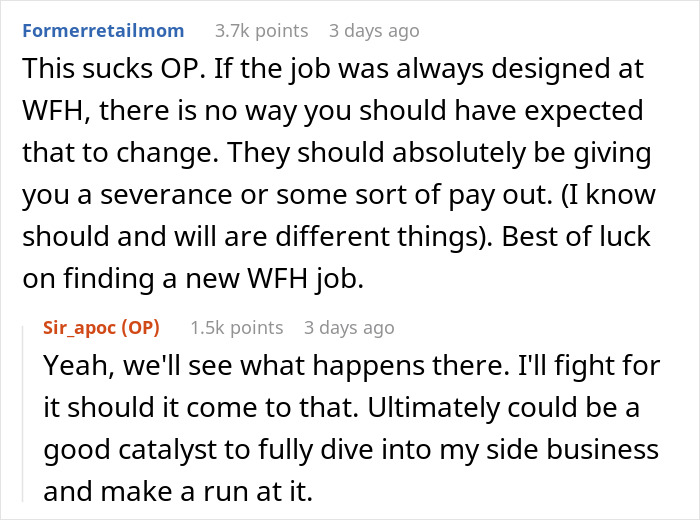

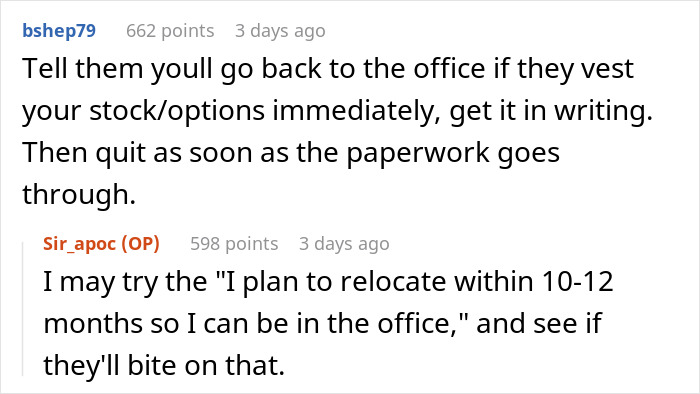
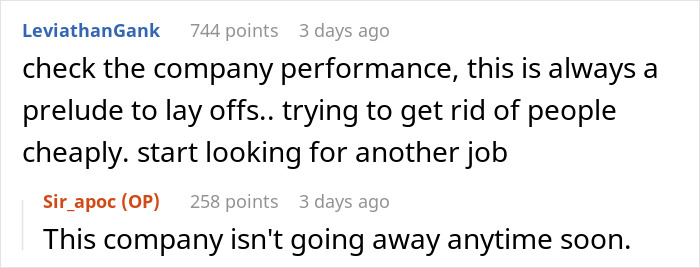
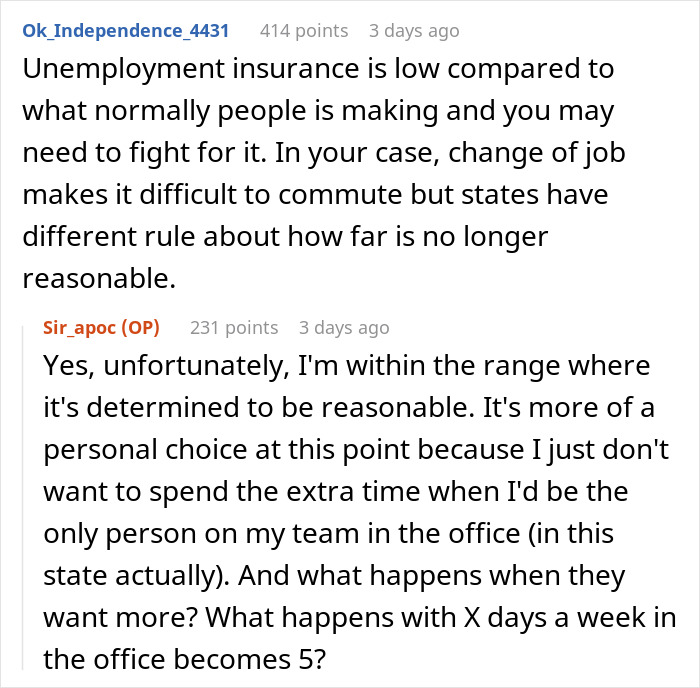
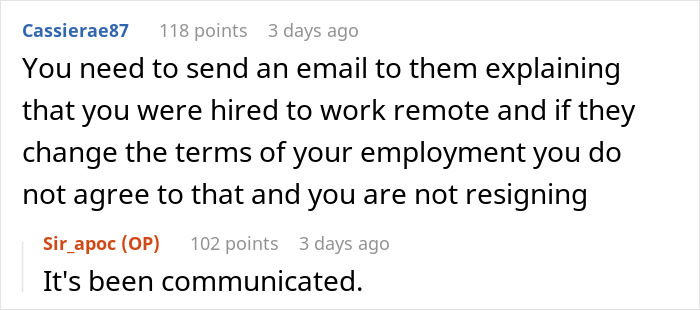
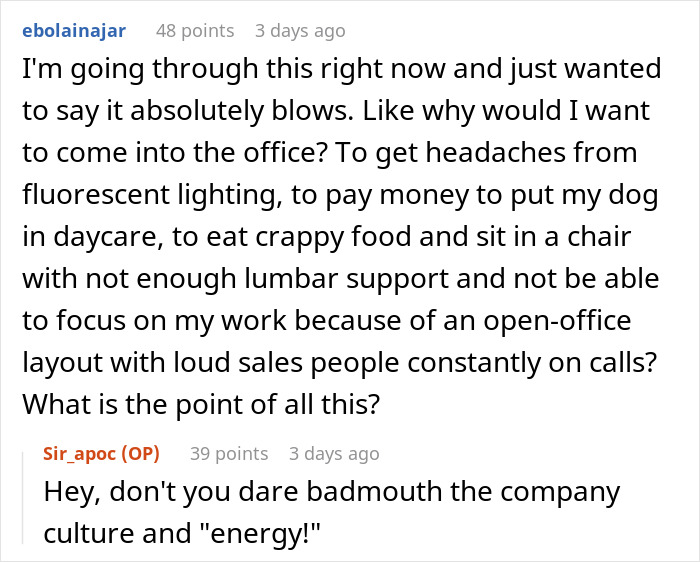
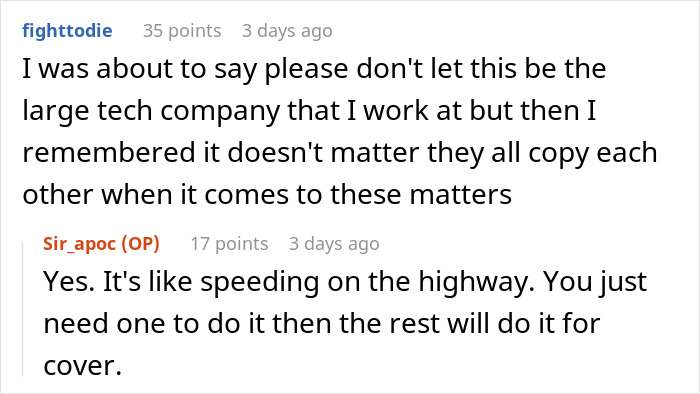
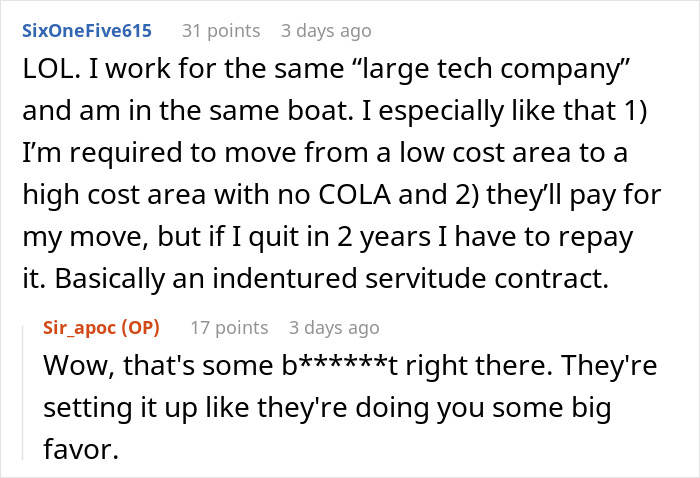
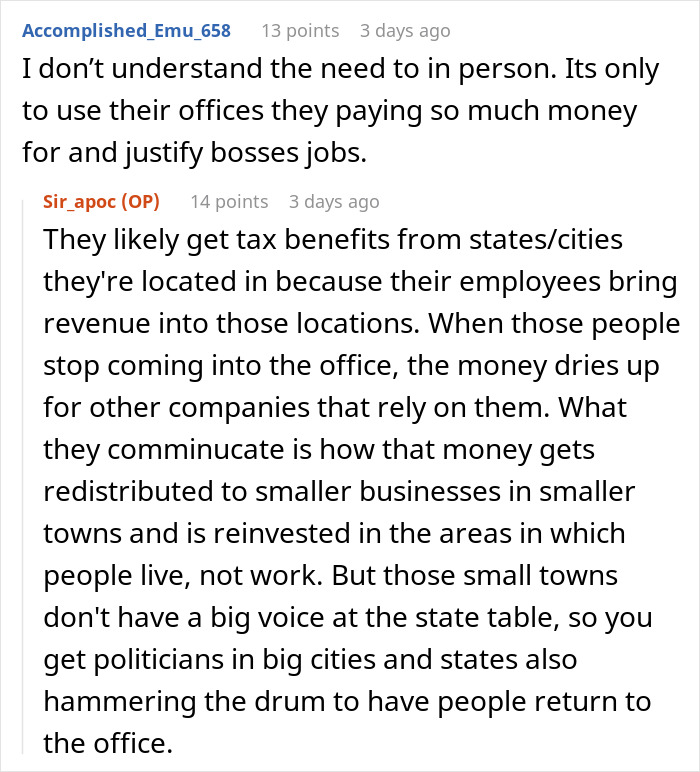
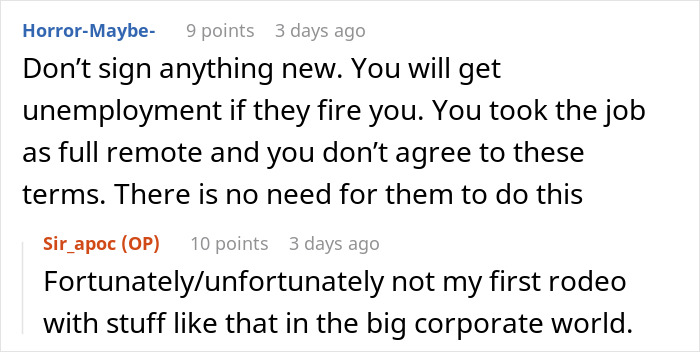

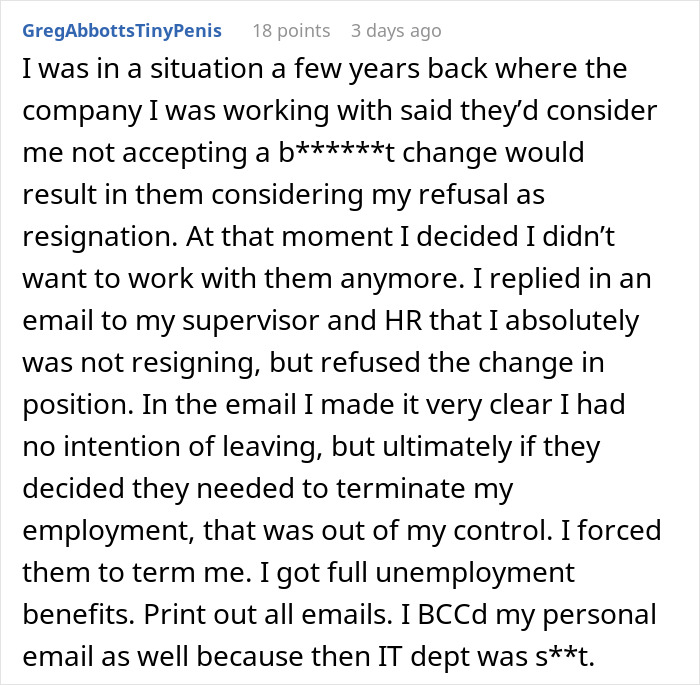
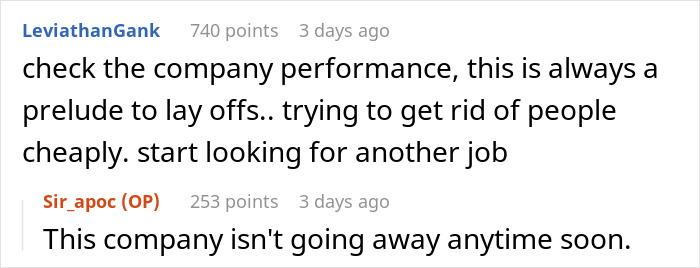
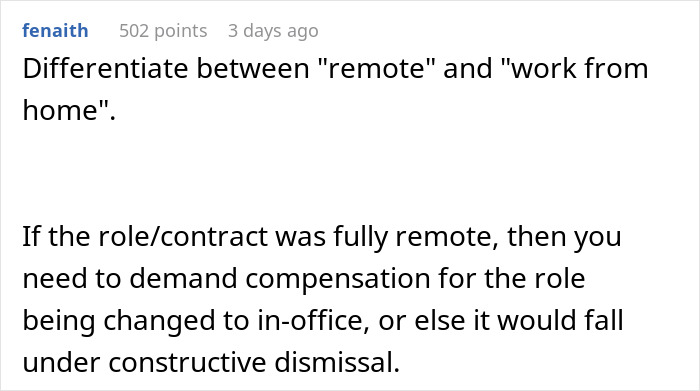
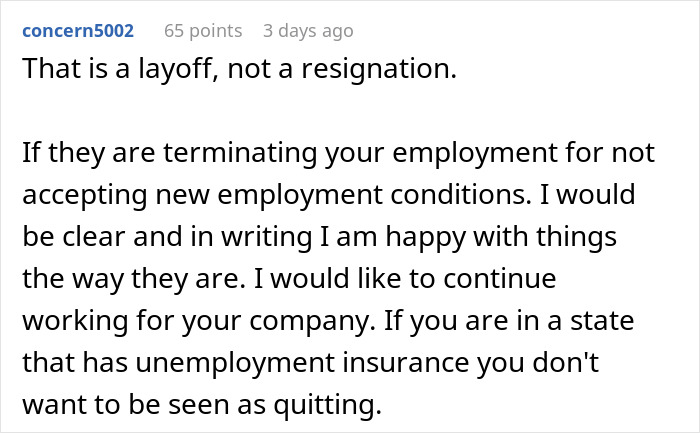
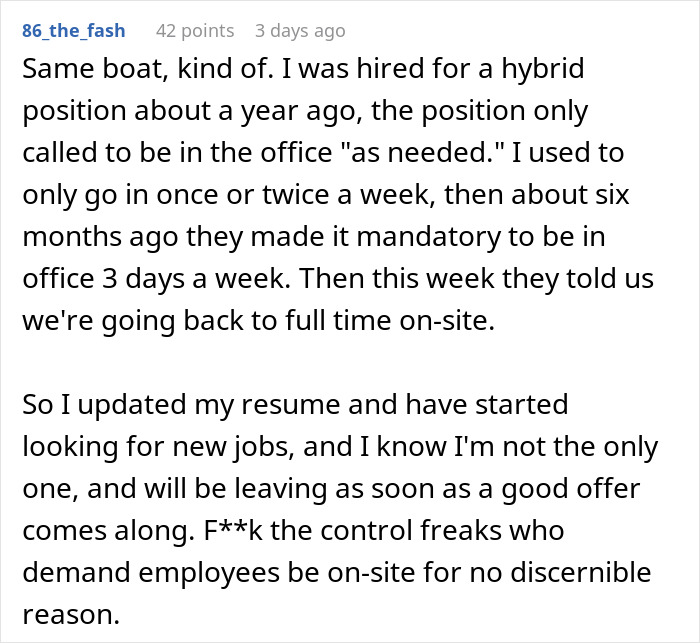












































65
36